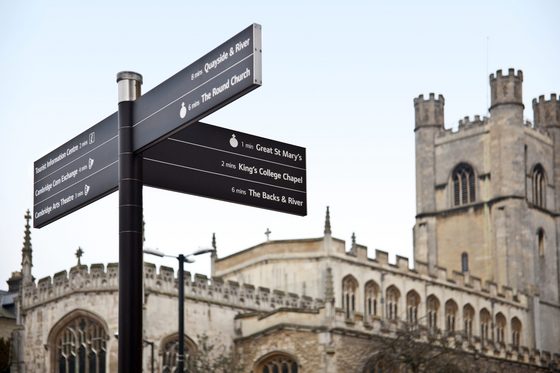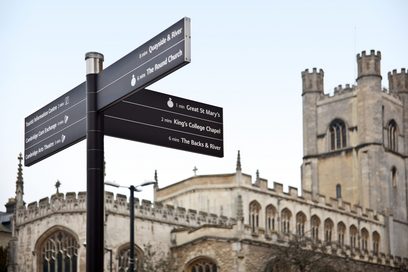Diese Seite ist erreichbar unter:
https://abi.de/studium/studienbereiche/sprach-kulturwissenschaften/sprach-literaturwissenschaften-dolmetschen-und-uebersetzen/a-languages-degree
Wir möchten unser Online-Angebot gut auf deine Bedürfnisse anpassen. Zu diesem Zweck setzen wir sogenannte Cookies ein. Entscheide bitte, welche Cookies du zulassen möchtest. Die Arten von Cookies werden nachfolgend beschrieben. Bitte beachte: Je nachdem, welche Cookies du zulässt oder nicht, stehen dir anschließend womöglich nicht mehr alle Funktionen der Website zur Verfügung. Mehr Informationen dazu findest du in unseren Datenschutzhinweisen
Einige unserer Cookies sind technisch bedingt – ohne sie würde unsere Website nicht richtig funktionieren. Sie sind unter anderem erforderlich für die portalweite Suchfunktion, das Anzeigen von Videoinhalten und deine Datenschutzeinstellungen.
Diese Cookies ermöglichen es uns, anonymisierte Daten zu deinem Besuch für Statistiken und die Analyse unserer Website zu sammeln. Wenn du diese Cookies zulässt, hilfst du uns dabei, die Website für die zukünftige Nutzung zu optimieren.
Franziska Hinz (25) studied Language, Literature and Cultural Studies with the main subjects of German and English/American Studies at the Technical University in Dresden. She spent three months at the University of Warwick in the UK.


A deficiency leads to creativity: When Franziska Hinz was still at school, “The Vampire Diaries” was one of her favourite series. Unfortunately, the latest season of the American series was initially only available in English. She therefore watched the English version with German subtitles. “I have always found learning foreign languages, especially English, to be pretty straightforward. From one episode to the next, I was able to follow the English better and better. In the end, I understood most of the dialogue without the subtitles,” explains the 25-year-old from Dresden. The series was one of the reasons why, after completing high school, Franziska decided to study for a bachelor’s degree in Cultural Studies with the main subjects of German and English/American Studies at TU Dresden.
“The orientation of the degree programme appealed to me because it is special: The combination of the three mainstays of language, literature and culture is only available at a limited number of universities. The bilingual approach with two languages means that it is possible to approach topics from different perspectives. I’ve found that to be a lot of fun,” she explains.

The bilingual approach with two languages means that it is possible to approach topics from different perspectives. I’ve found that to be a lot of fun.
Franziska Hinz studied Language, Literature and Cultural Studies with the main subjects of German and English/American Studies.
The bachelor’s degree programme was divided into several basic modules. In the field of German studies, the students attend classes in historic German literature, modern German literature, applied linguistics, German linguistics and German as a second or foreign language. In the field of English/American Studies, Franziska Hinz has studied English linguistics on a synchronous basis, where the present is taken into account, and English linguistics on a diachronic basis, where the past is taken into account.
In addition to this are classes in English and American literature and cultural studies, as well as language teaching seminars. “The language teaching seminars are popular with most students because they genuinely address the practice of language,” says Franziska Hinz. At the initial level, you start with “Vocabulary”, “Grammar” and “Pronunciation and Intonation” and finish in the final semesters with “Advanced Translation” and “Advanced Essay Writing”. Elective seminars such as “Error Analysis” and the Theatre Workshop are also offered.
Experience with actually speaking and using a language is mainly gained abroad. At the beginning of her degree programme, Franziska Hinz was unable to gain much practical experience due to the pandemic. In her seventh semester, however, she was finally able to go abroad as part of her degree programme. Organising this was not easy: She had chosen to focus on the UK during her studies. Most British universities, however, had withdrawn from the European Erasmus programme as a result of Brexit. She turned to other sources and found a place at the University of Warwick near Coventry via the ‘Mobility Online’ platform, which allows you to check which partner universities your own university cooperates with. During her time there, she was not only able to improve her language skills, but also made friends for life. She has now completed her Bachelor's degree and started a Master's programme in Digital Humanities.
German version of this article >>
Stand: 23.05.2024
Vielen Dank für dein Feedback zu dieser Seite! Deine Kritik oder dein Lob zu abi.de kannst du uns gerne auch ergänzend über „Kontakt“ mitteilen. Deine abi» Redaktion
Diese Seite ist erreichbar unter:
https://abi.de/studium/studienbereiche/sprach-kulturwissenschaften/sprach-literaturwissenschaften-dolmetschen-und-uebersetzen/a-languages-degree